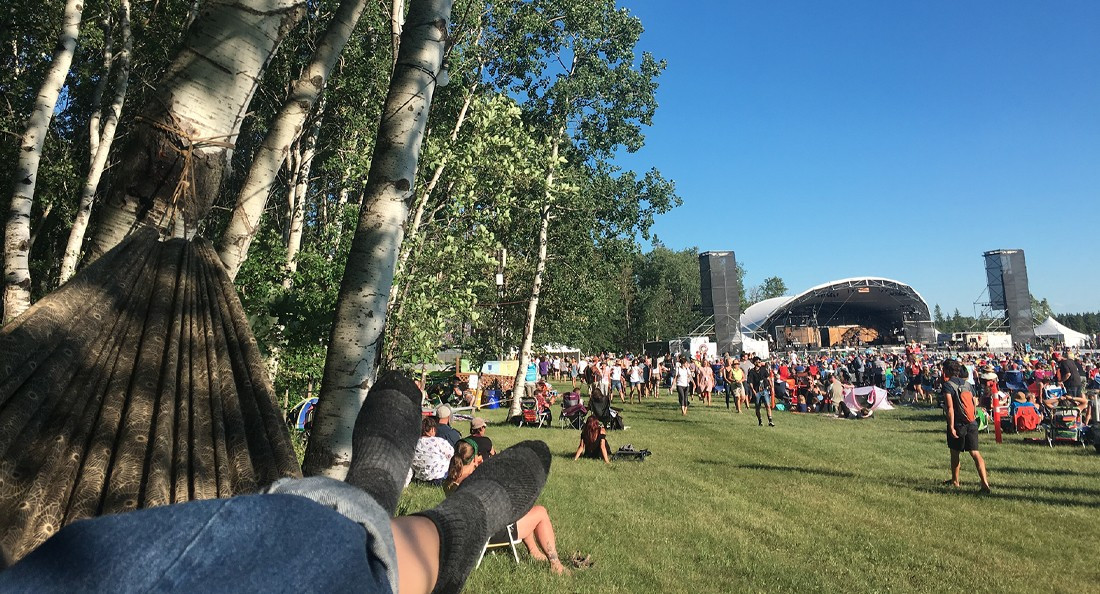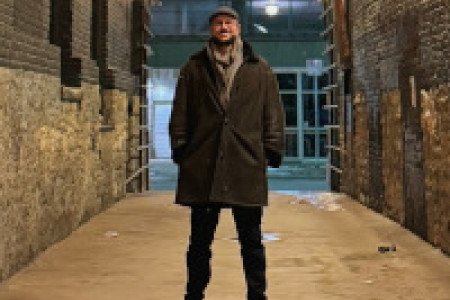Summer festivals and sober joy
Reconsidering nightlife, music and drinking culture
Over the last year, I’ve been contemplating the distance between not drinking and being sober, and that gap shows up even more prominently when it comes to summer activities, especially festivals.
What I called sober in the beginning was, in retrospect, more like not drinking. I quit just before Canada Day and wandered around the Osborne street festival for a bit anyway, just not drinking. I went to a friend’s wedding in the first week of sobriety and danced with the other revellers, just not drinking. And within the first month of this change, I went to the Folk Festival and did pretty much everything the same as before, just not drinking.
At first, summer festivals and events felt like the ideal place to be not drinking. They were spaces of time where, unlike a night at the bar, there were things to do other than drink. There was music and other forms of fun. I treated myself to fancy lemonades and any treats I desired and still had cheaper days out than when I’d been drinking.
But I’ve noticed a shift, and I’m starting to see how not drinking doesn’t change the fact that so many of our social events are saturated in drinking culture. The space to not drink isn’t built into most summer events, and summer festivals are no exception. It’s carved out, often through the stubbornness, perseverance and emotional labour of sober folks.
I can sip a sparkling water next to people sipping beers, and be not drinking, and feel somewhat included. But that doesn’t mean I get to exist in a sober-friendly space.
For most people who decide not to drink, be it for a month or for an indeterminate amount of time, it quickly becomes evident how alcohol is everywhere – not just in advertising, but in how many of our social routines and rituals centre on both casual drinking and intoxication. Never even mind how ever-present cannabis has become since legalization – but that’s another article.
Not drinking means going against the societal flow in terms of both major life events and smaller interactions. It’s a change in habit, but not necessarily a change in perception. Being sober feels like leaving a cult while everyone around you is still in the cult, and the world at large seems to accept that valuing drinking as being central to our lives is totally normal.
Sobriety has become so much more than not drinking for me. It means learning to take care of myself. It means no longer glamourizing self-destructive behaviours. It means the opposite of “no pain, no gain.” It’s the act of being present and taking care of myself and others as best as I can. It means letting go of so many societal expectations as well: of FOMO, of living for the weekend, of what success and joy look like.
It means living for small moments and simple routines, like a bowl of oats in the morning, like the patterned shade of the tree in my backyard, like putting pen to paper every day, like that final cup of tea before bed.
In that first sober summer, I continued with my same priorities, just not drinking. As fall and winter rolled in, and as opportunities to see music moved more indoors, I had a harder time finding my place. I’ve always loved music, but going to bars sober became a bit of a drag. Nights started late, and without booze, the hours spent in venues really dragged on. I wondered if this was really how I wanted to spend my evenings. I wondered if the tired mornings were worth it.
I drifted away from music overall. The business of music is so tightly knitted together with bars, which need to sell alcohol to keep their doors open in order to host the bands I wanted to see. It’s not conducive to sobriety, and I learned that I wanted more than to just not drink alongside drinking culture. I wanted to live in spaces that supported my sobriety and everything that went along with it.
As I began to acknowledge and accept this quieter sober life, I re-evaluated what summer festivals might even mean to me. What if I don’t want to stay out late or push my body to its limits or have beer spilled on me in crowds and smoke blown in my face? It’s hard to think about what, outside of a big party outside, a festival might offer sober folks.
More often than not, there is a lot of thought put into beer gardens and alcohol regulation but not a lot of planning put into how a festival can welcome and embrace sober patrons. But still, is there a space I can carve out for myself there? And do I even want to do that work? Is it worth it?
As I’ve explored more summer festivals over the years, big and small, I’ve learned that the part I love most about them is that they’re an impromptu small city, but generally with a more joyful, relaxed atmosphere. Being in a festival city, as opposed to an urban city, generally means a higher saturation of people around me seeking intoxication. But the slight lifting of social norms also means more space to drift off from them and find my own kind of fun – we’re not all crammed together in a dark venue.
I love living in pop-up tent villages, having space to wander around outside and running into friends I don’t see in the city as often. I’ve missed some excellent bands or just heard them from a distance while napping in a hammock. But I’ve also been able to enjoy days filled with great music, asleep or awake, and a slower pace. And live daytime music is generally not a thing I get to enjoy indoors in the colder months.
Perhaps it’s not the festivals themselves that are less appealing to my sober self, but the nightlife culture that comes along with them. However, without hangovers, I’ve got a lot more space to enjoy the music and the festival spaces all day long. Perhaps, even amidst the atmosphere or drinking culture, there is room for sober joy at festivals. This summer, I’m going to set up my tent at least once, and try to find it.
Published in Volume 73, Number 25 of The Uniter (May 30, 2019)







